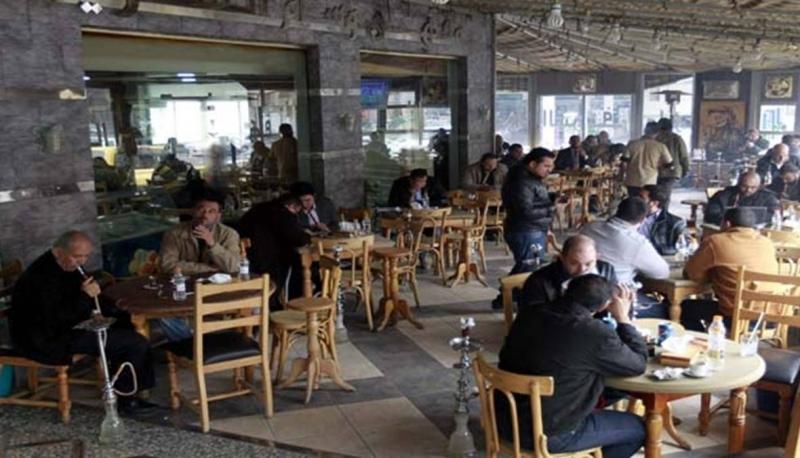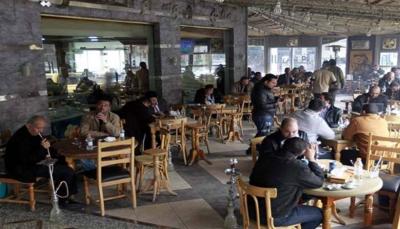In an unprecedented phenomenon, the number of women smoking hookah has doubled compared to men, according to statistics from the Higher Population Council. Experts and activists are ringing alarm bells as Jordan leads the Arab world and the region in the number of smokers. The World Health Organization estimated that around 43 percent of Jordanian women smoke hookah, which is double the rate of men, while the general prevalence of smoking among the population is 70 percent among males and 35 percent among females.
From Social Rejection to Tolerance
Despite an old governmental decision banning hookah in cafes for five years, the precise way "hookah" or "narghile" infiltrated the female demographic in Jordan is unclear, as it was socially rejected even by men. However, cultural and social factors have converged, making this phenomenon present in nearly every Jordanian household, alongside a significant change in social values and greater societal tolerance towards female smoking than in the past. Many view this as a social activity and an expression of personal freedom and women’s independence, especially as children in Jordan engage with electronic cigarettes at alarming rates.
The Higher Population Council blames deceptive marketing strategies employed by the tobacco industry targeting youth and calls for confronting this through health awareness and education programs to promote a healthy lifestyle. Activist Riham Mohammed notes a shift in social roles, with more women present in places serving hookah, such as cafes and restaurants that permit this type of smoking. She highlights the social influence of friends and family on many women's decisions to smoke hookah, as it has become a shared family and social activity rather than just an individual one.
Shocking Numbers
The World Health Organization estimated that the number of tobacco users and smokers in Jordan in 2022 was 2.77 million people, with 2.29 million men and 483,000 women. Amman ranked first in the Middle East for smoking prevalence among individuals at 36 percent, as reported in the "Trends in Tobacco Use 2000-2030" report by the World Health Organization. According to statistics from the Jordanian Ministry of Health, more than 50 percent of Jordanian youth aged 18 to 24 smoke hookah regularly. Furthermore, a national survey on risk factors associated with non-communicable diseases indicated that the percentage of electronic cigarette and vape users is 9.2 percent.
While males tend to prefer traditional tobacco products like ready-made cigarettes, Jordanian women lean more towards smoking hookah. Furthermore, the average age at which men start smoking is significantly lower than that of women: 17 years for men versus 24 years for women.
Economic Losses
A government report titled "Where Does Jordan Stand in Its Battle Against Smoking?" indicates that annual economic losses due to premature deaths caused by tobacco consumption amount to approximately $560 million, with around $290 million in healthcare costs attributed to smoking. Economic observers note that the deteriorating social and economic situation is closely linked to the rising prevalence of cigarette smoking in Jordan, as poor smokers spend 25 times more on cigarettes than on health, 10 times more on cigarettes than on education, and 1.5 times more on cigarettes than on food.
Health Economic Impact
From both economic and health perspectives, the outlook appears grim given the economic and health losses caused by smoking. Public healthcare costs increase due to smoking-related diseases, with over 9,000 deaths annually, 56 percent of which involve early deaths among individuals under 70. Since lung cancer is the most common cause of death among men in Jordan, smoking is considered the largest contributing factor. Additionally, Jordanian spending on tobacco products ranks second after food and poultry, suggesting that reliance on smoking might result in decreased food expenditure.
The "Jordanian Economic Forum" emphasizes that anti-smoking strategies must be more effective and comprehensive, noting that the average annual spending per person on tobacco products is around $700, which is about 13.5 percent of their total food expenditure. The most recent statistics from the "Department of Statistics" show that the capital, Amman, has the highest tobacco expenditure at 15 percent, as it has the highest population density, while other provinces have similar rates of about 12 percent. Data also reveal that the tobacco industry generates nearly $1 billion in economic activity annually in Jordan, but economic losses due to smoking exceed $2 billion.
Insufficient Laws and Measures
Despite numerous laws and legislative steps taken in Jordan, they do not seem sufficient to deter smokers or reduce their numbers, as there is no official data indicating a decline in the smoker population or reduced spending on smoking in recent years. Nonetheless, anti-smoking measures and legislation abound, such as the national anti-tobacco strategy launched by the Ministry of Health for the years 2024-2030, along with its 2024-2026 action plan. Significant amendments have also been made to the "Public Health Law" to strengthen anti-smoking efforts and ban it in all forms in public and enclosed areas.
While there are punitive measures against smokers in public places, observers claim these are not enforced rigorously. Additionally, there is leniency in preventing the sale of tobacco products to children under 18, although officials assert their commitment to safeguarding public health, especially for minors, and continuously dispatch regulatory bodies to ensure stores comply with tobacco sale laws. A World Bank report indicates that nearly half of current smokers attempted to quit smoking in the past year, without leading to a permanent change in behavior. This prompted Jordan's Minister of Health, Firas Al-Hawari, to adopt a digital solutions plan aimed at fostering behavioral and social changes, raising public awareness about the dangers of smoking, and attempting to influence youth behaviors towards adopting a healthy lifestyle, as smoking is linked to approximately one in eight deaths in Jordan.




